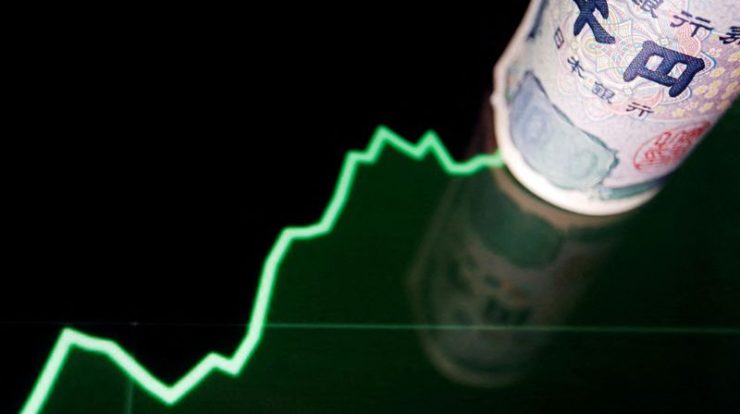
Japanese markets and the yen are predicted to decrease, while longer-term domestic government bond yields are projected to rise, as exit polls indicate. Prime Minister Shigeru Ishiba’s coalition will lose its parliamentary majority in Sunday’s election.
According to polls, the long-ruling LDP and its junior coalition partner Komeito, or maybe another grouping, may be obliged to establish a government through power-sharing arrangements with other parties.
The thought of the scandal-plagued LDP losing its outright majority rattled Japan’s financial markets in the run-up to the election. Fears grew when opinion polls in the run-up to the vote suggested the coalition itself could lose its majority.
“The political uncertainty resulting from the election outcome may negatively affect investors’ sentiment, putting pressure on the markets in the near term,” said Samuel Hoang, a portfolio manager for Japan funds at Eastspring Investments in Singapore.
A minority coalition, in particular, would focus market attention on the policy positions of opposition parties that could become possible allies, many of which support low interest rates. Markets may potentially price in more aggressive government expenditure.
“If they want to show good teamwork, they need to spend more,” said Shoki Omori, Mizuho Securities’ chief Japan desk strategist. “Fiscal policy is going to come first—that’s where the focus is going to be, and I think it’s going to need to be a big one.”
Ishiba, who had only been in power for a month, had set his eyes on the coalition retaining the 233 seats required for a majority in the lower house, as opposed to the LDP’s 247 MPs plus Komeito’s 32.
Morgan Stanley analysts noted that coalition losses could lower the likelihood of the future administration implementing “more challenging agenda items, such as raising the corporate tax rate.”
Political uncertainty drove the benchmark Nikkei share average down 2.7% last week, and the selling is expected to continue for the time being. Longer-dated Japanese government bond yields rose due to concerns about a larger government fiscal imbalance.
The yen, already under pressure from rising U.S. Treasury yields, plummeted last week to 152 per dollar for the first time in three months.
Analysts at BNY believe the dollar might rise to 155 yen again as the Bank of Japan downplays the need for a rate hike. the Japanese election threatens to exacerbate political uncertainty.
“The dollar is largely based on U.S. data. I believe the yen will be sold off tomorrow since the election results may be viewed as meeting expectations,” Mizuho’s Omori said. “There will be relief that the event is done.”
Japan’s general election takes place nine days before the closely contested U.S. presidential election, with investors weighing the possibility of a stronger dollar and higher yields if Donald Trump wins another term and the Republicans sweep the Senate and House of Representatives.






